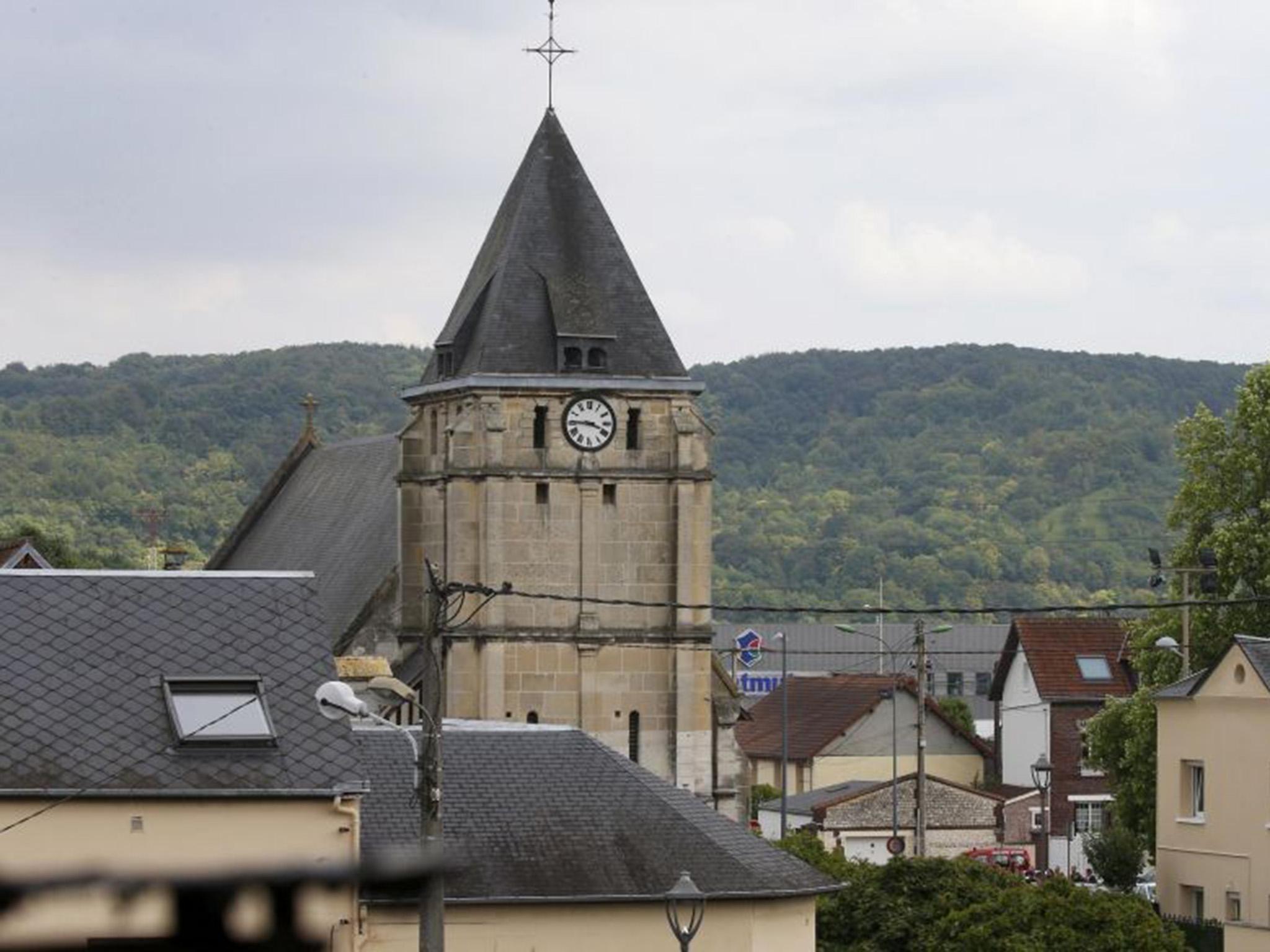France church attack: Normandy attacker identified by authorities as 18-year-old Adel Kermiche
The Algerian-born teenager's electronic tag had been deactivated during the day

Your support helps us to tell the story
From reproductive rights to climate change to Big Tech, The Independent is on the ground when the story is developing. Whether it's investigating the financials of Elon Musk's pro-Trump PAC or producing our latest documentary, 'The A Word', which shines a light on the American women fighting for reproductive rights, we know how important it is to parse out the facts from the messaging.
At such a critical moment in US history, we need reporters on the ground. Your donation allows us to keep sending journalists to speak to both sides of the story.
The Independent is trusted by Americans across the entire political spectrum. And unlike many other quality news outlets, we choose not to lock Americans out of our reporting and analysis with paywalls. We believe quality journalism should be available to everyone, paid for by those who can afford it.
Your support makes all the difference.One of the two attackers who slit the throat of an elderly priest in a church in France has been named as Adel Kermiche.
The 18-year-old and his unnamed accomplice stormed the church in Saint-Etienne-du-Rouvray near Rouen in Normandy, and forced 86-year-old Father Jacques Hamel to kneel before they slit his throat on camera in the style of an Isis murder video.
An 86-year-old woman, one of five held hostage on Tuesday, said the attackers handed her husband a mobile phone and demanded that he take photos or video of the priest after he was killed.
Her husband was in turn slashed in four places by the attackers and is now hospitalised with serious injuries.
The elderly woman identified only as Jeanine told RMC radio that her husband played dead to stay alive. Two nuns were held hostage along with the couple and the priest, while a third nun escaped and gave the alert.
One of the terrorists had a handgun and began to shout “Allah Akbar” and the other had a fake bomb with a timer.
They then gave a “sermon in Arabic” at the altar and were shot dead by police. Their four other hostages, including two nuns and two parishioners, were then rescued.
Family friend Jonathan Sacarabany said Kermiche grew up in a housing project in Saint-Etienne-du-Rouvray.
Mr Sacarabany said the jihadist was originally born in Algeria and had a sister who is a doctor in Rouen and a brother. Their mother is a professor.
He said the family had previously told French authorities about his radicalisation to stop him going to Syria. He was arrested in 2015 while trying to get to Syria using his brother's passport and was sent back to France.
This March he was arrested for plotting terrorist attacks.
Kermiche had been put under judicial supervision after his arrest but the electronic bracelet was deactivated for five hours a day allowing him to leave the house during the day without surveillance, an unnamed police official said.
The officer, who spoke on condition of anonymity, said Kermiche had been required to check in with police every day.

In a statement to the media, French prosecutor François Mollins said an investigation had been launched into the “cowardly” actions of the terrorists and a number of people had been arrested in connection with the attack.
Investigators believe the second assailant was a 19-year-old from south-east France who was previously unknown to police, a judicial source said on Wednesday.
The source said the delay in formally identifying Abdel Malik P as the second attacker occurred because DNA tests were being carried out.
His identity card was found at Kermiche's home on Tuesday, the source added.
It comes as French President François Hollande has cancelled a visit to the Czech Republic for the second time following another terror attack on the country.
He had planned to meet with Czech President Milos Zemand and Prime Minister Bohuslav Sobotka to discuss the security situation in Europe.
France and Germany have come under a wave of attacks in recent weeks with at least three Islamist terror incidents in Germany in the past week and the events in Nice on 14 July where a lorry driver ploughed a car into the Bastille Day crowd killing 84 people.
Following the Nice attacks, Mr Hollande announced the extension of a state of emergency which had been in place since 130 people were killed in a string of shootings and bombings in Paris in November.
Mr Hollande and Prime Minister Manuel Valls were booed at a memorial service for the victims of the attack after it was revealed the French government had denied a request by Christian Estrosi, the president of the region, for more security at the Bastille Day event.
Additional reporting by agencies